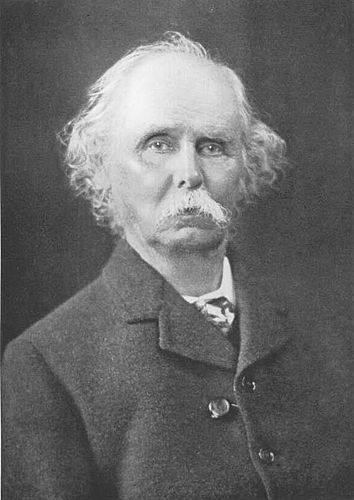1.
The most valuable of all capital is that invested in human beings
Alfred Marshall
2.
Political Economy or Economics is a study of mankind in the ordinary business of life.
Alfred Marshall
3.
Capital is that part of wealth which is devoted to obtaining further wealth.
Alfred Marshall
4.
Knowledge is our most powerful engine of production.
Alfred Marshall
5.
In common use almost every word has many shades of meaning, and therefore needs to be interpreted by the context.
Alfred Marshall
6.
Civilized countries generally adopt gold or silver or both as money.
Alfred Marshall
7.
The price of every thing rises and falls from time to time and place to place; and with every such change the purchasing power of money changes so far as that thing goes.
Alfred Marshall
8.
The most reckless and treacherous of all theorists is he who professes to let facts and figures speak for themselves.
Alfred Marshall
9.
Nature's action is complex: and nothing is gained in the long run by pretending that it is simple, and trying to describe it in a series of elementary propositions.
Alfred Marshall
10.
In every age poets and social reformers have tried to stimulate the people of their own time to a nobler life by enchanting stories of the virtues of the heroes of old.
Alfred Marshall
11.
Every short statement about economics is misleading (with the possible exception of my present one).
Alfred Marshall
12.
Consumption may be regarded as negative production.
Alfred Marshall
13.
The love for money is only one among many.
Alfred Marshall
14.
I admit that these terms and the diagrams connected with them repel some readers, and fill others with the vain imagination that they have mastered difficult economics problems, when really they have done little more than learn the language in which parts of those problems can be expressed, and the machinery by which they can be handled. When the actual conditions of particular problems have not been studied, such knowledge is little better than a derrick for sinking oil-wells erected where there are no oil-bearing strata.
Alfred Marshall
15.
All wealth consists of desirable things; that is, things which satisfy human wants directly or indirectly: but not all desirable things are reckoned as wealth.
Alfred Marshall
16.
It is common to distinguish necessaries, comforts, and luxuries; the first class including all things required to meet wants which must be satisfied, while the latter consist of things that meet wants of a less urgent character.
Alfred Marshall
17.
We might as well reasonably dispute whether it is the upper or the under blade of a pair of scissors that cuts a piece of paper, as whether value is governed by demand or supply.
Alfred Marshall
18.
Slavery was regarded by Aristotle as an ordinance of nature, and so probably was it by the slaves themselves in olden time.
Alfred Marshall
19.
The commercial storm leaves its path strewn with ruin. When it is over there is calm, but a dull, heavy calm.
Alfred Marshall
20.
Producer's Surplus is a convenient name for the genus of which the rent of land is the leading species.
Alfred Marshall
21.
Material goods consist of useful material things, and of all rights to hold, or use, or derive benefits from material things, or to receive them at a future time.
Alfred Marshall
22.
But if inventions have increased man's power over nature very much, then the real value of money is better measured for some purposes in labour than in commodities.
Alfred Marshall
23.
The hope that poverty and ignorance may gradually be extinguished derives indeed much support from the steady progress of the working classes during the 19th century.
Alfred Marshall
24.
And very often the influence exerted on a person's character by the amount of his income is hardly less, if it is less, than that exerted by the way in which it is earned.
Alfred Marshall
25.
Again, most of the chief distinctions marked by economic terms are differences not of kind but of degree.
Alfred Marshall
26.
Though a simple book can be written on selected topics, the central doctrines of economics are not simple and cannot be made so.
Alfred Marshall
27.
In the absence of any short term in common use to represent all desirable things, or things that satisfy human wants, we may use the term Goods for that purpose.
Alfred Marshall
28.
All labour is directed towards producing some effect.
Alfred Marshall
29.
Individual and national rights to wealth rest on the basis of civil and international law, or at least of custom that has the force of law.
Alfred Marshall

